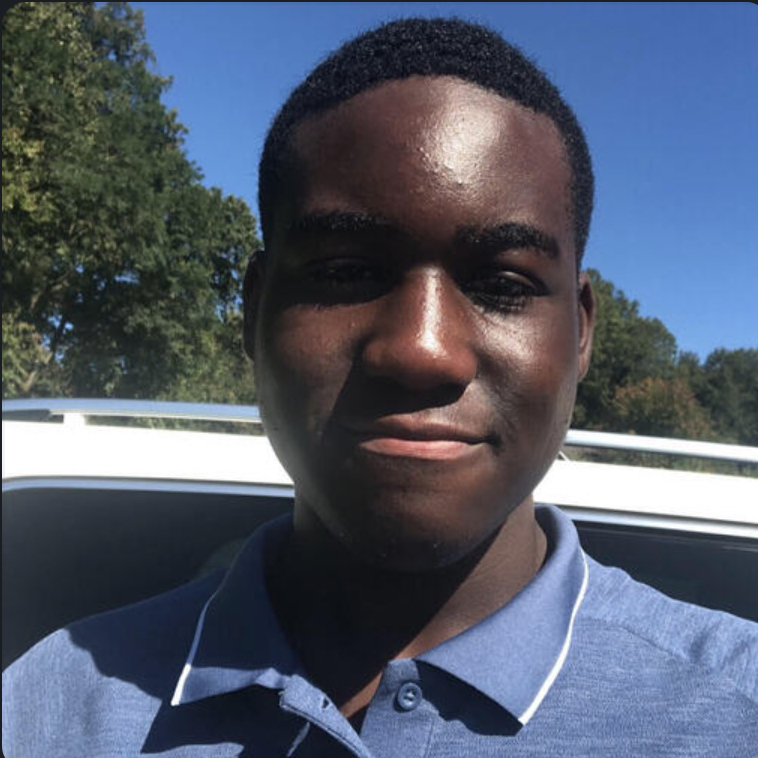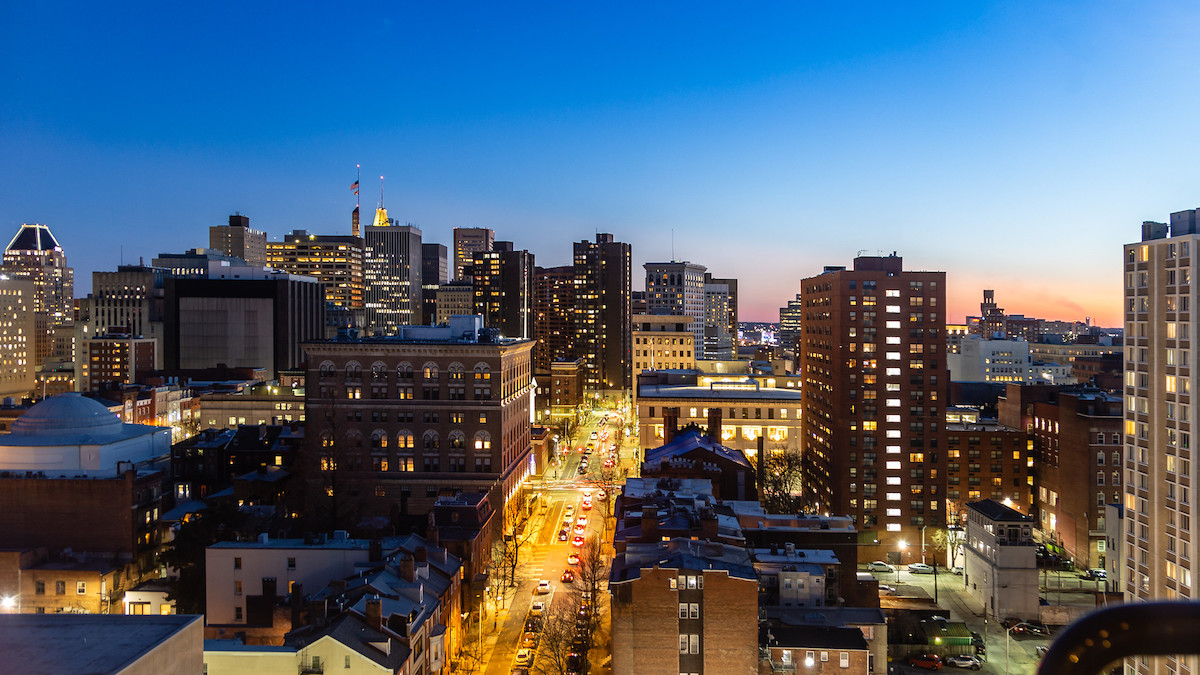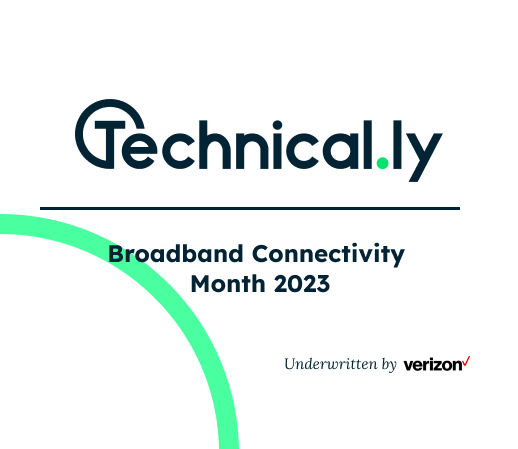
This editorial article is a part of Broadband Connectivity Month of Technical.ly's editorial calendar, underwritten by Verizon. Verizon is a Technical.ly Ecosystem Builder client.
Given how imperative the internet is to daily life, the lack of broadband access across Baltimore’s neighborhoods hinders the lives of many residents. To combat this, Mayor Brandon Scott formulated a plan to get the city’s less-connected residents improved access to the internet throughout the year.
In May 2023, Mayor Scott announced the launch of Bmore Connected, the city’s effort to inform city residents about the Affordable Connectivity Program (ACP). The ACP is a federal plan that pays $30 monthly to an internet service provider for a qualifying household, which includes those with residents eligible for SNAP, Medicaid, housing assistance and Federal Pell Grants.
The campaign aims to make qualifying recipients aware of the federal program, encouraging them to sign up and get access to much-needed internet connection. Bmore Connected also aims to inform residents about the Maryland Emergency Broadband Program, which awards an additional $15 subsidy to those already qualifying for the ACP. The campaign urges those who believe they are eligible to go to the city’s website, which includes a link to an online application and a number to call to request a paperback application.
To advertise the ACP, the Mayor’s Office has been working alongside organizations like Wide Angle Youth Media, which created digital ads to promote the campaign on social media platforms like Instagram.
“Our team created a brand identity that resembles a router, illustrating that the city’s initiative routes people to goals, connectivity and the community,” explained Dan Flounders, design manager for Wide Angle Youth Media.
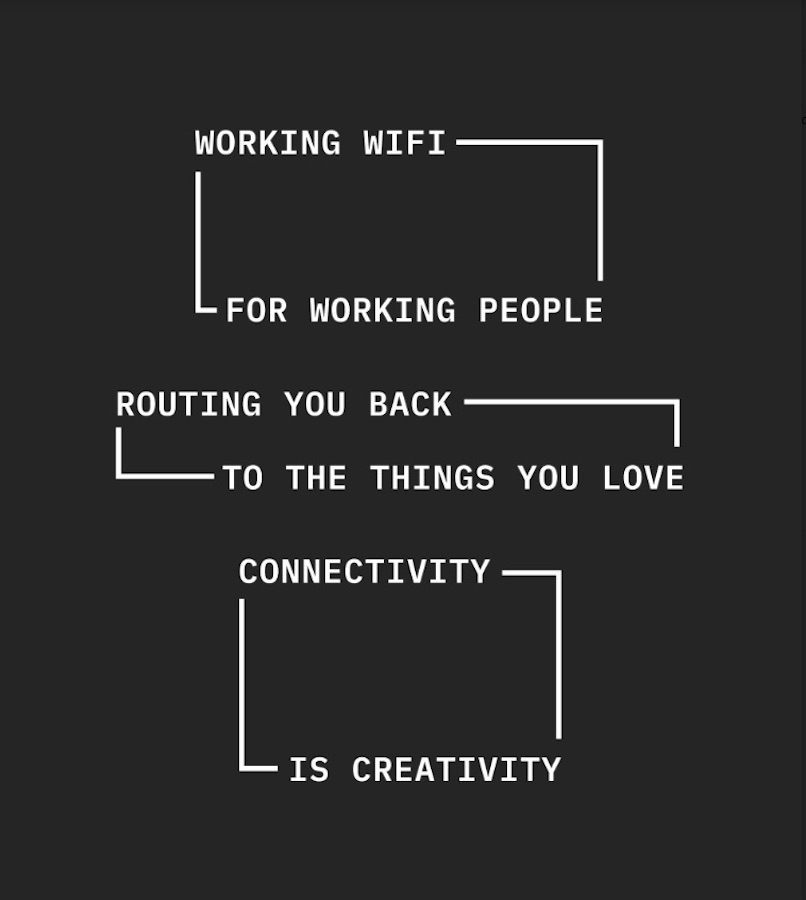
A brand asset for the Bmore Connected initiative, created by Wide Angle Youth Media. (Courtesy image from Wide Angle Youth Media)
Wide Angle Youth Media is just one of several partners that the city government worked with to promote the ACP. Kenya Asli, the interim director of broadband and digital equity within Baltimore City Information and Technology (BCIT), told Technical.ly via email that the city government is collaborating with faith-based organizations, neighborhood groups and city agencies like the Housing Authority of Baltimore City to promote ACP enrollment. The city’s Digital Equity Fund aims to help these organizations, as well.
“Additionally, our work with partners at the community level will be supplemented by a larger ad campaign that includes MTA bus and metro ads, billboards, radio spots and paid social media,” she said. “Ads are expected to begin September 2023 and run through 2024.”
These efforts are being subsidized by $300,000 in American Rescue Plan Act money that the city budgeted. According to the city, they have started to pay off. Asli said that there has been an over 11% increase in eligible households being enrolled in the ACP, from 55,040 in May to 65,983 as of early August.
Still, a question remains about how effective the campaign can be in informing as many eligible Baltimoreans as possible. The Benton Institute of Broadband has developed a tool tracking how many eligible residents of the ACP are enrolling across the nation. ACP enrollment is rated “medium” by the institute, with 44% of eligible residents enrolled in the federal program. The numbers are more dire in areas like downtown Baltimore, which received a “low” rating due to only 28% of eligible households receiving the benefits of the ACP.
Flounders suggested that Wide Angle’s design team may start working on print campaigns such as billboards to advertise the ACP. In addition, Baltimore Digital Equity Coalition Executive Director Cody Dorsey articulated the importance of on-the-ground outreach.
“Word of mouth is crucial, and when school resumes in late August, it’s important for school officials to promote the program to children who qualify for free or reduced lunch as they are eligible for the ACP,” commented Cody Dorsey, Executive Director of the Baltimore Equity Coalition.
Beyond Baltimore, Asli said that the Maryland Office of Statewide Broadband “secured the services” of digital divide-focused organization EducationSuperHighway to help the city develop Bmore Connected. She added that there’s a possibility of extra support from the federal Broadband Equity, Access and Deployment (BEAD) program depending on how much of the $42.45 billion gets allocated to Maryland.
_
Technical.ly editor Sameer Rao contributed to this report.
Join the conversation!
Find news, events, jobs and people who share your interests on Technical.ly's open community Slack

Baltimore daily roundup: Bowie State's esports reputation; AI impersonator arrested; EpiWatch names new CEO
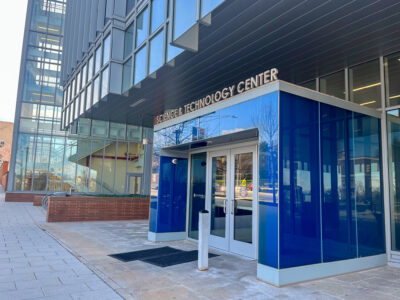
Baltimore daily roundup: Real estate deal in the Peninsula; Missing $100M nitrile glove factory; Dirt bike clampdown

Baltimore daily roundup: Gen AI's software dev skills; UpSurge Tech Ecosystem Report; MD service year program

